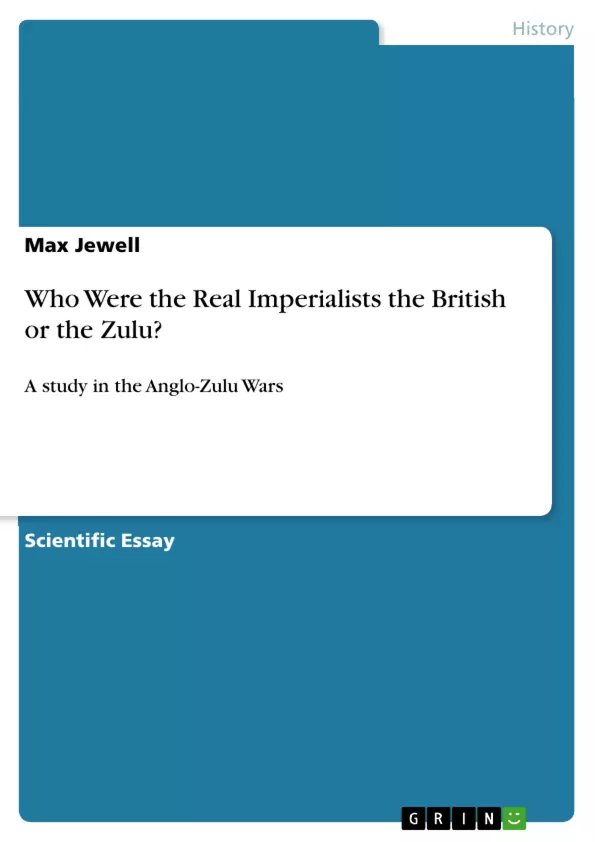“In annexing the Transvaal the question of the confederation never crossed my mind.”
It was during a debate on the 25th of March 1879 that Lord Carnarvon’s claim that he hadn’t considered confederation in annexing the Transvaal was met with derision. Not only was Lord Carnarvon the architect of the Canadian confederation and despite his speech to the contrary pushed the Permissive Confederation Act, which sought to unify many South African states into a confederation, through parliament in 1877. To many within the upper chamber the annexation of the Transvaal represented a demonstrable act of British imperialism. Saul David, author of Zulu: the Heroism and Tragedy of the Zulu War of 1879 makes this explicit, claiming; ‘Sir Bartle Frere knew that both the Transvaal and the Cape were unlikely to agree to confederation until the threat from the Zulu Kingdom had been removed. He was determined to fight the Zulu for the good of the Empire, but was determined to make it look as though it was being fought for local or defensive reasons.’ Journalist A.N Wilson even goes so far as to brand the 19th century British as ‘jingoistic imperialists’
'... A fine piece of work... well researched and properly referenced... readable and interesting'
Dr Adrian Greaves The Anglo-Zulu War Historical Society
Table of Contents
- British Imperialism in South Africa during 1879
- The Meaning of Imperialism
- British Imperialism in South Africa
- The Anglo-Zulu War: A Conflict of Empires?
- A Closer Examination of the Zulu Nation
- Conclusion
Objectives and Key Themes
This text explores the nature of British imperialism in South Africa during the 1870s, specifically focusing on the events leading to the Anglo-Zulu War of 1879. It examines the extent to which British actions were driven by imperialist motives and compares them to the expansionist policies of the Zulu nation. The work aims to shed light on the complex dynamics of imperial power, highlighting the intersection of political, economic, and military factors.
- The definition and characteristics of imperialism
- The role of British diplomacy and military conquest in expanding the empire
- The motivations behind British actions in South Africa, including the desire for confederation and the perceived threat from the Zulu kingdom
- The history of Zulu expansionism and its similarities and differences with British imperial policies
- The impact of the Anglo-Zulu War on both British and Zulu societies
Chapter Summaries
The first chapter establishes the context of British imperialism in South Africa during the 1870s. It highlights the annexation of the Transvaal in 1876 and Lord Carnarvon's ambition to create a confederation of South African states. The chapter explores the motivations behind these actions and presents conflicting interpretations of British imperial intentions.
Chapter two delves into the meaning of imperialism, drawing on differing viewpoints from economists and sociologists. It outlines the defining traits of imperialism, including disregard for national sovereignty, the imposition of foreign ideologies, and the pursuit of economic exploitation.
The third chapter analyzes the British approach to South Africa during the Gladstone administration. It examines the reduction of British troop presence in the region and argues that the British were not actively seeking to expand their empire in South Africa during this period.
Chapter four delves into the Anglo-Zulu War, exploring the historical context and the factors contributing to the conflict. It examines the role of Lord Chelmsford and Sir Bartle Frere in escalating tensions with the Zulu kingdom.
Chapter five focuses on the history of the Zulu nation, tracing its growth and expansion under Shaka and subsequent Zulu kings. It highlights the similarities and differences between Zulu expansionism and British imperialism, emphasizing the shared use of violence and control.
Keywords
This text revolves around the central themes of British imperialism, the Anglo-Zulu War, and the contrasting ideologies of expansionism. Key keywords include imperialism, colonialism, confederation, the Transvaal, Zululand, Shaka, Cetshwayo, Lord Carnarvon, Lord Chelmsford, Sir Bartle Frere, and national sovereignty.
Frequently Asked Questions
What were the main motivations for British imperialism in South Africa?
Key motivations included the desire for a confederation of South African states, economic exploitation, and the perceived need to remove the Zulu Kingdom as a threat to colonial stability.
Was the Zulu nation also considered "imperialist"?
The text examines Zulu expansionism under Shaka and subsequent kings, highlighting similarities to British imperialism such as territorial expansion through violence and control over other groups.
Who was Lord Carnarvon and what was his role?
Lord Carnarvon was the architect of the Canadian confederation and pushed for a similar "Permissive Confederation Act" in South Africa, which led to the annexation of the Transvaal.
How did Sir Bartle Frere contribute to the Anglo-Zulu War?
Frere believed that confederation was impossible as long as the Zulu Kingdom existed. He escalated tensions and sought a conflict for the "good of the Empire," often framing it as defensive.
What is the historical significance of the year 1879 in South Africa?
1879 marks the Anglo-Zulu War, a pivotal conflict that demonstrated the extent of British jingoistic imperialism and resulted in the eventual tragedy of the Zulu nation.
- Citar trabajo
- Max Jewell (Autor), 2012, Who Were the Real Imperialists the British or the Zulu?, Múnich, GRIN Verlag, https://www.grin.com/document/187843



